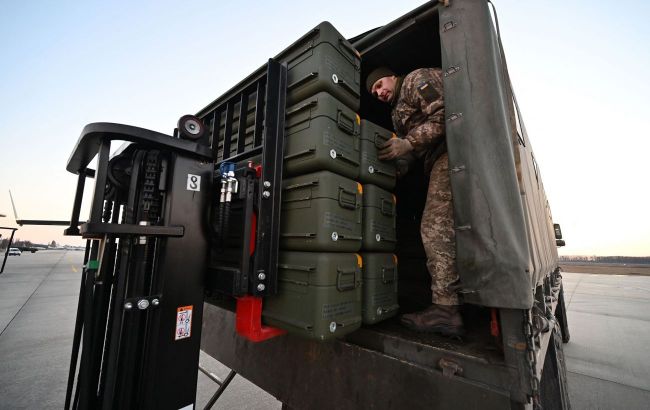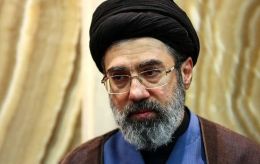Poland strengthens Ukraine military aid hub security over potential sabotage
 Illustrative photo (Getty Images)
Illustrative photo (Getty Images)
Polish authorities are tightening security measures at the main transit hub for foreign military aid to Ukraine due to fears of sabotage by Russia, according to Interior Minister Tomasz Siemoniak.
Siemoniak confirmed that steps are being taken to bolster security around the Rzeszow-Jasionka airport. Located less than 100 km from the Ukrainian border, this hub handles up to 90% of Western equipment heading to the front lines. It has also become a key stopover point for foreign officials visiting Kyiv.
"We are facing a foreign state that is conducting hostile and — in military parlance — kinetic action on Polish territory," Siemoniak said in the interview in Warsaw, without detailing the security measures at the airport. "There has never been anything like this before."
The minister said that Poland is experiencing an unprecedented level of foreign interference after Prime Minister Donald Tusk announced that as many as 12 people had been detained as part of a crackdown on suspected sabotage efforts directed from Russia. These incidents involve arson, attempted arson, and physical attacks.
The role of the Rzeszow-Jasionka airport in the Kremlin-supported operation came to light in April. Prosecutors reported the arrest of a suspect accused of aiding a plot to assassinate Ukrainian President Volodymyr Zelenskyy. As part of the plan, the man allegedly sought to gather information on airport security.
Sabotage in Poland
As part of the Polish investigation, authorities are probing the Kremlin’s involvement in a fire that destroyed a shopping center in Warsaw earlier this month. Another case involves a suspected attempt to set fire to a paint factory in the city of Wroclaw in the west of the country.
Siemoniak said that the recent actions were ordered by Russian military intelligence, adding that similar methods are being used across Europe. He explained that these often involve recruiting so-called one-time agents, such as soccer hooligans or organized crime groups, willing to carry out such acts for money.
The minister called it a "very serious situation," as Russian services are now operating on foreign soil much more consciously.
"We’re no longer talking about agents of influence or some online activities," Siemoniak said. "These are individuals who are ready to come and set things on fire."
The Polish border town of Rzeszow has become a logistical center and main hub for arms supplies since the beginning of Russia's full-scale war against Ukraine. Rzeszow is sometimes referred to as the most dangerous place in Poland, though it is protected by powerful air defenses.

